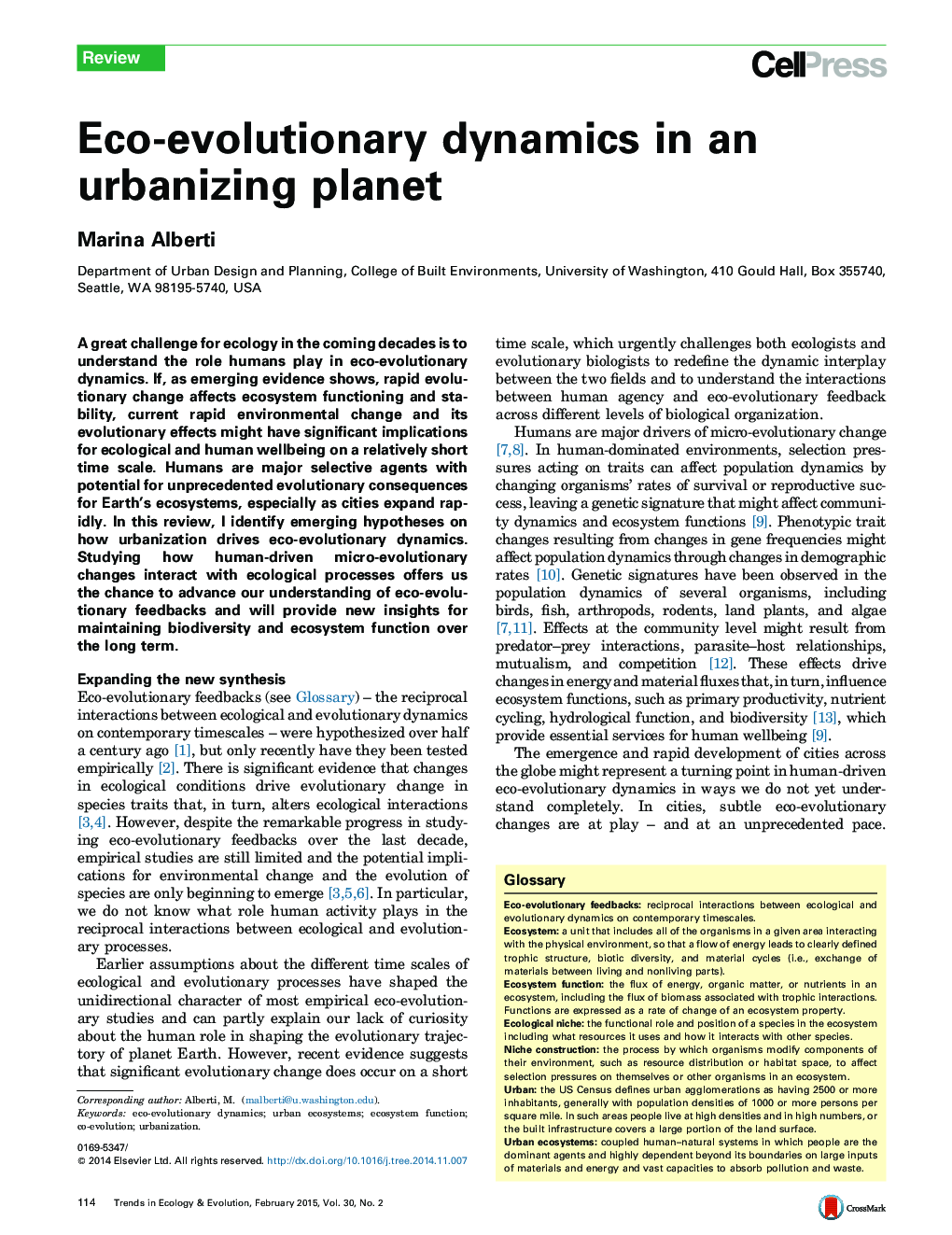| کد مقاله | کد نشریه | سال انتشار | مقاله انگلیسی | نسخه تمام متن |
|---|---|---|---|---|
| 142364 | 163107 | 2015 | 13 صفحه PDF | دانلود رایگان |
• Humans mediate eco-evolutionary feedbacks through urbanization.
• In this review, I discuss studies of observed signatures of urban-driven trait changes across multiple taxa.
• By linking urban signatures to ecosystem function, we can hypothesize the eco-evolutionary implications of urbanization.
• The hybrid nature of urban ecosystems is a source of both instability and innovation in the eco-evolutionary dynamic.
• Understanding the mechanisms by which humans affect eco-evolutionary feedbacks in urban areas will provide new insights for maintaining ecosystem function in an urbanizing planet.
A great challenge for ecology in the coming decades is to understand the role humans play in eco-evolutionary dynamics. If, as emerging evidence shows, rapid evolutionary change affects ecosystem functioning and stability, current rapid environmental change and its evolutionary effects might have significant implications for ecological and human wellbeing on a relatively short time scale. Humans are major selective agents with potential for unprecedented evolutionary consequences for Earth's ecosystems, especially as cities expand rapidly. In this review, I identify emerging hypotheses on how urbanization drives eco-evolutionary dynamics. Studying how human-driven micro-evolutionary changes interact with ecological processes offers us the chance to advance our understanding of eco-evolutionary feedbacks and will provide new insights for maintaining biodiversity and ecosystem function over the long term.
Journal: - Volume 30, Issue 2, February 2015, Pages 114–126
